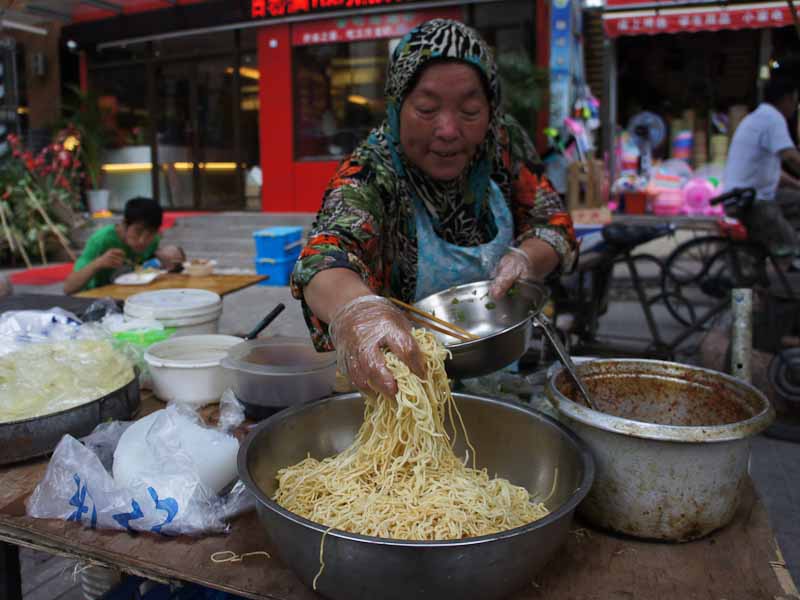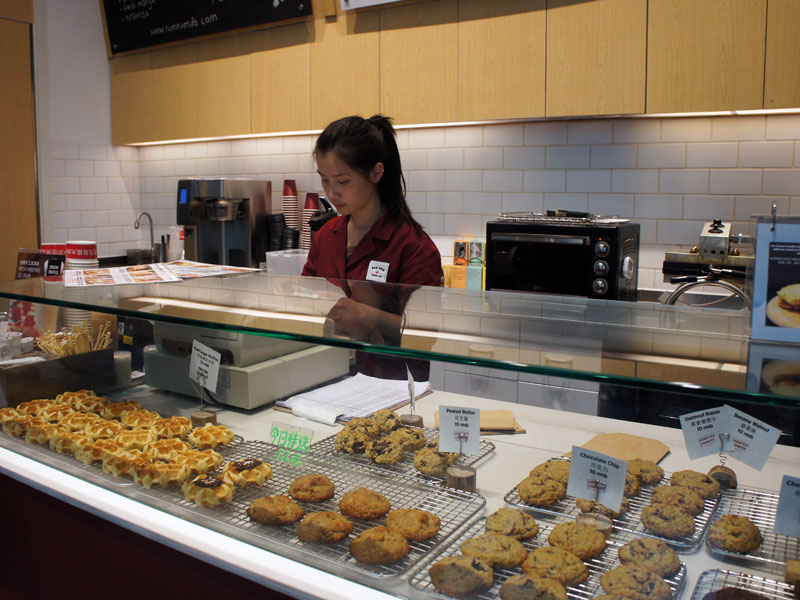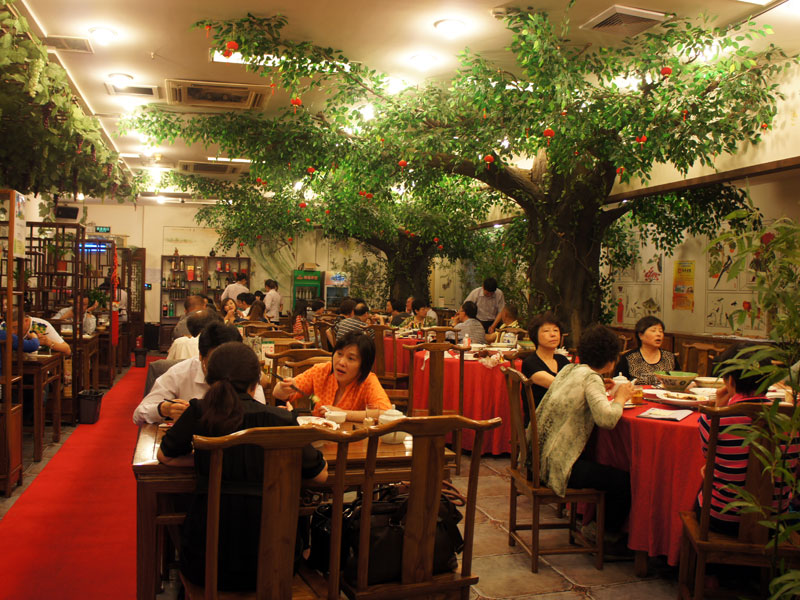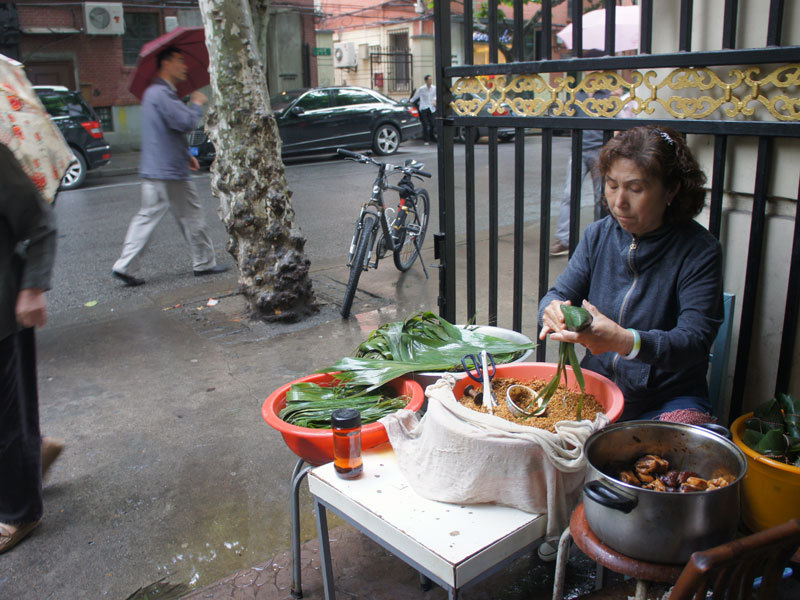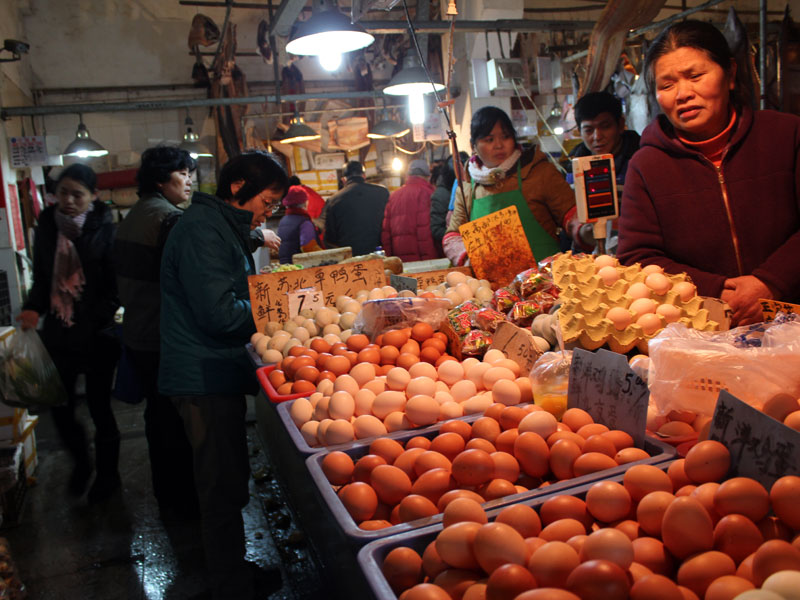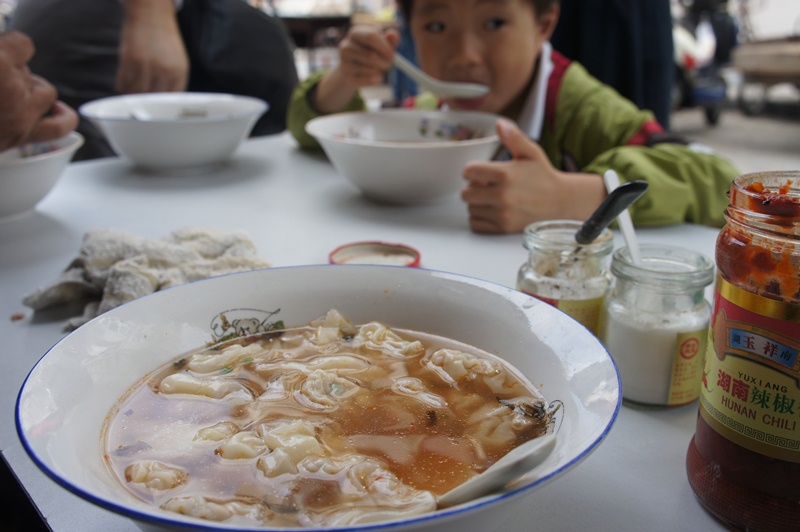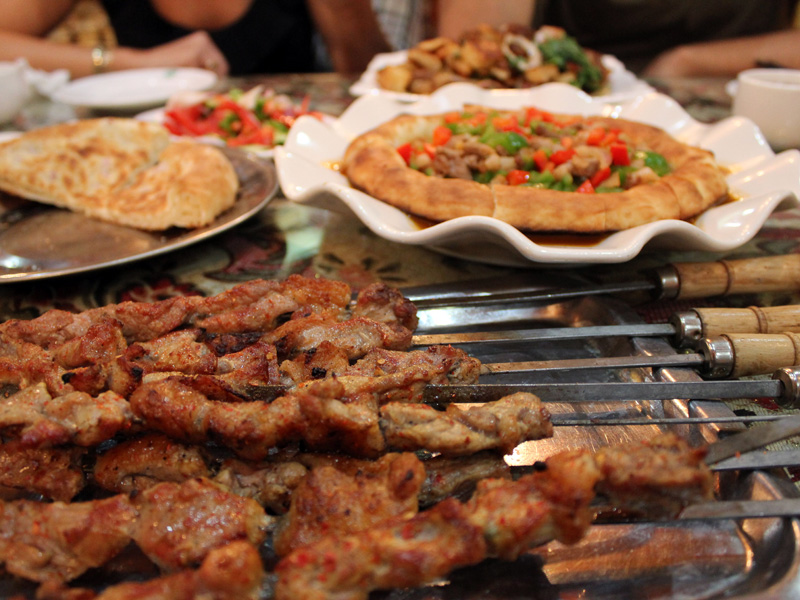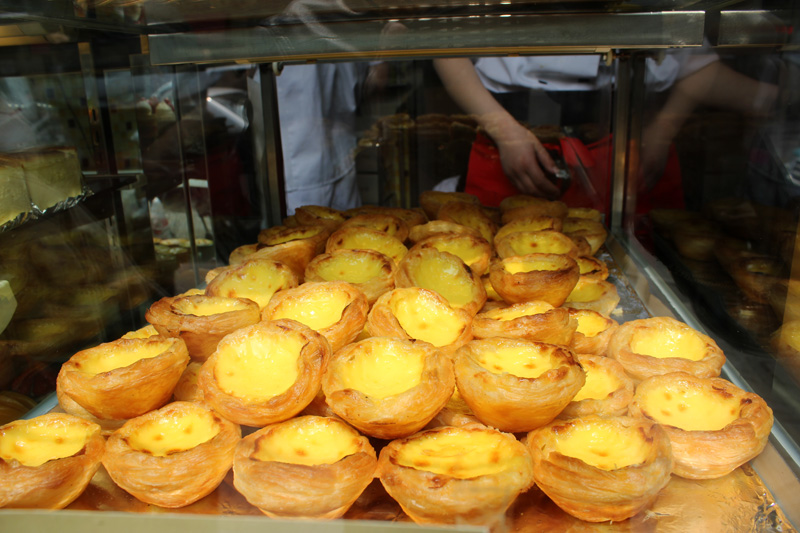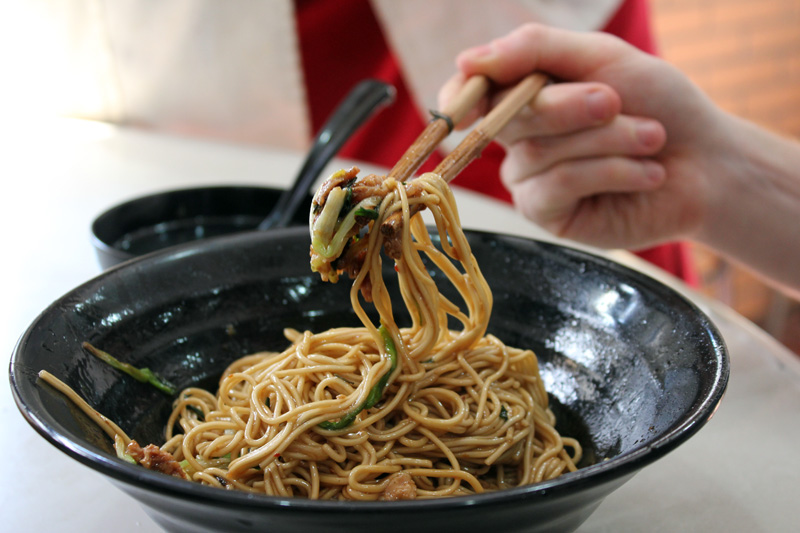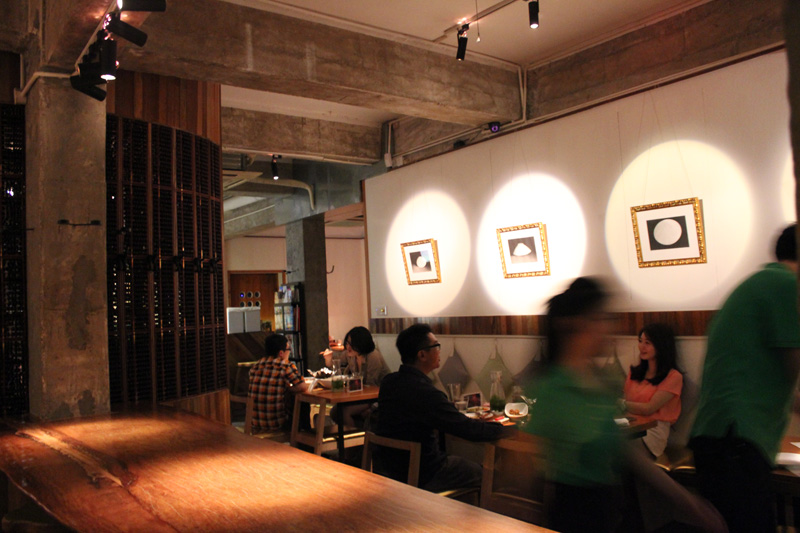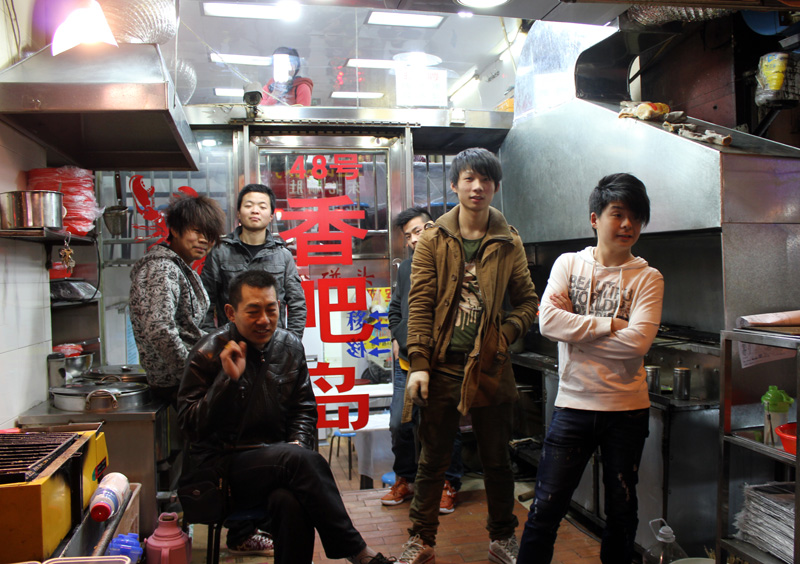We can't find the internet
Attempting to reconnect
Something went wrong!
Hang in there while we get back on track
Search results for "Kyle Long"
Shanghai
CB on the Road: Chengdu's Spicy Noodles
It’s been two weeks of cycling through China’s Qinghai province, and the food selection is slim. The majority of the province sits on the vast Tibetan Plateau, well above the tree line in conditions too harsh for significant cultivation. Yaks graze on well-trampled grass as far as the eye can see, with white yurts and colorful prayer flags dotting the hillsides and each summit pass. By Chinese standards, six million inhabitants in the country’s fourth-largest province make Qinghai practically deserted. For long stretches, only nomadic yak herders can be spotted between the tiny villages. Stopping for a roadside lunch in the small, isolated towns inevitably means a bowl of either mutton or yak chopped-noodle soup (羊肉面片, yángròu miàn piàn or 毛牛肉面片, máo niúròu miàn piàn). Served up in a tomato-chili broth, it’s a tasty meal, but repeated daily, it inevitably becomes tiresome. Additional ingredients sometimes includes julienned zucchini or green peppers, depending on the remoteness of the particular town and their staggered vegetable shipments. After just one week, we’re eagerly awaiting more fruitful pastures, and Sichuan province, located just to the east on our route, is a culinary paradise.
Read moreShanghai
Lu Dajie: Big Sister Knows Best
It’s not every day that you find a former national volleyball champ in the kitchen, but that’s just the case with Lu Dajie (aka “Big Sister” Lu) and her eponymous restaurants. After a successful career with the Chinese military’s volleyball team, followed by years working in restaurants for others, she left her hometown of Jianyang in Sichuan province with her brother, bringing her region’s famous cuisine with her. Now, in Shanghai, she is slowly building an empire.
Read moreShanghai
Baijiu: China’s Firewater
Drinking báijiǔ (白酒) always brings us back to our first illicit taste of hard alcohol – a shock to the system, going down fiery and leaving a shudder-inducing aftertaste on the tongue. And just as many first-time drinkers are left wondering where exactly the attraction lies, the same thing is true for baijiu – at least, until the aftereffects start to kick in. In fact, even the Chinese believe that one needs to drink 300 shots over time in order to truly understand the appeal of baijiu.
Read moreShanghai
Chenghuang Miao Tese Xiaochi: Divine (and Delicious) Madness
On the diner intimidation scale, Shanghai’s Chenghuang Miao Tese Xiaochi – which can be loosely translated as “City God Temple Snack Shop” – ranks pretty high, with aggressive lunchtime crowds and nothing but Chinese character-laden menus for guidance. But the payoff, a baptism by fire in authentic Chinese eating, is worth it. The hungry masses that congregate here have discovered a simple truth: the food here is quick, tasty and cheap – a gastronaut’s holy trinity.
Read moreShanghai
Lotus Eatery: Minority Cuisine Report
Ever since former President Deng Xiaoping opened China’s economic doors to the rest of the world starting in 1979, foreigners wishing to do business in China have had to find a local partner to form a joint venture company. Though no longer a hard-and-fast requirement, that’s still the modus operandi at Lotus Eatery, where a founding partnership brings together the best of both culinary worlds: unusual yet authentic local flavors and distinctly foreign notions of consistent quality and attentive service.
Read moreShanghai
Where Skyscrapers Loom, A Street Food Paradise Thrives
Earlier in 2012, Jing’an Villas – a square, block-sized 1930s-era housing area in the heart of downtown Shanghai – survived an ironic plan that called for permanently relocating all of its 3,000-plus residents in order to better “preserve” the historic neighborhood. Luckily, the plan was shot down in a party committee meeting. For now, at least, Jing’an Villas remains the perfect setting for trying longtang cai, simple, home-style alleyway food that features local favorites.
Read moreShanghai
Hunan Xiangcun Fengwei: A Taste of Chinglish
Dinner and a comedy routine isn’t a concept that has caught on in China. A few Sichuan restaurants feature a traditional show with the help of some loud music, a man with a flashy cape, and a mask with many thin layers that changes with a quick, hidden tug. But a Hunan restaurant? Never. At the popular neighborhood joint Hunan Xiangcun Fengwei, however, the finger-licking good food from Chairman Mao’s home province shares top billing with the subtle art of Chinglish menu translations that at first glance seem to defy explanation.
Read moreShanghai
Lillian Cake Shop: The Egg Tart, Perfected
Confucius once said, “The superior man is modest in his speech, but exceeds in his actions.” He clearly never met a food writer, because superlatives and immodest speech are basically all we have to work with. But had Confucius opened a small patisserie, it would probably be Lillian Cake Shop.
Read moreShanghai
Wei Xiang Zhai: One Dish Wonder
Sometimes a word in Chinese so perfectly captures a mood or feeling that the English approximation seems woefully inadequate. To take one example, the Chinese combine “hot” (热) and “noise” (闹) to describe the loud and lively nature of local hotspots, but in English, the best we can do is “bustling.” To experience what China’s “hot noise” is really all about, head to Wei Xiang Zhai. Not for the claustrophobic or timid, this wildly popular noodle house demands that you elbow your way to a table for your chance to slurp down a bowl of the city’s best sesame paste noodles (麻酱面, májiàng miàn). Don’t be intimidated by the Chinese-only menu here. It may look long and complicated, but over the years, the character for “sold out” (无) has become a permanent menu fixture, collecting dust and reminding diners that once, long ago, there were other options here.
Read more
